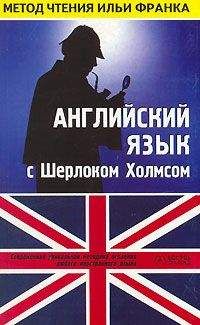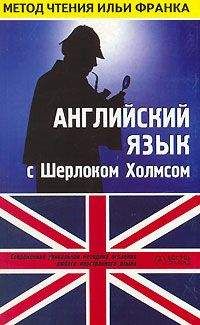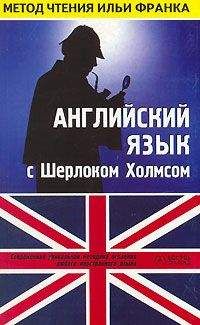mumbling ['mVmblIN], vouching ['vautSIN], bachelor ['b& [email protected]@], bridegroom ['braIdgru:m]
"I was half-dragged up to the altar, and before I knew where I was I found myself mumbling responses which were whispered in my ear, and vouching for things of which I knew nothing, and generally assisting in the secure tying up of Irene Adler, spinster, to Godfrey Norton, bachelor. It was all done in an instant, and there was the gentleman thanking me on the one side and the lady on the other, while the clergyman beamed on me in front. It was the most preposterous position in which I ever found myself in my life, and it was the thought of it that started me laughing just now. It seems that there had been some informality about their license, that the clergyman absolutely refused to marry them without a witness of some sort, and that my lucky appearance saved the bridegroom from having to sally out into the streets in search of a best man. The bride gave me a sovereign, and I mean to wear it on my watch-chain in memory of the occasion."
"This is a very unexpected turn of affairs (это очень неожиданный оборот дел)," said I; "and what then (и что /случилось/ затем)?"
"Well, I found my plans very seriously menaced (ну, я понял, что мои планы: «нашел мои планы» под серьезной угрозой; to menace — грозить). It looked as if the pair might take an immediate departure (это выглядело = казалось, что пара может предпринять немедленное отправление = может немедленно уехать), and so necessitate very prompt and energetic measures on my part (и, таким образом, вызвать необходимость очень быстрых и энергичных мер с моей стороны). At the church door, however, they separated (у церковной двери, однако, они разделились), he driving back to the Temple (он вернулся в Темпл), and she to her own house (а она к себе домой). 'I shall drive out in the park at five as usual (я буду кататься в парке в пять, как всегда),' she said as she left him (сказала она, прощаясь с ним). I heard no more (больше я ничего не слышал). They drove away in different directions (они уехали в разных направлениях), and I went off to make my own arrangements (а я ушел = вернулся, чтобы сделать мои собственные приготовления = взяться за свои приготовления)."
"Which are (какие: «которые суть»)?"
menaced ['menIst], departure [dI'pA: [email protected]], necessitate [nI'sesIteIt], measures [' [email protected]]
"This is a very unexpected turn of affairs," said I; "and what then?"
"Well, I found my plans very seriously menaced. It looked as if the pair might take an immediate departure, and so necessitate very prompt and energetic measures on my part. At the church door, however, they separated, he driving back to the Temple, and she to her own house. 'I shall drive out in the park at five as usual,' she said as she left him. I heard no more. They drove away in different directions, and I went off to make my own arrangements."
"Which are?"
"Some cold beef and a glass of beer (немного холодной говядины и стакан пива)," he answered, ringing the bell (ответил он, звоня в колокольчик). "I have been too busy to think of food (я был слишком занят, чтобы думать о еде), and I am likely to be busier still this evening (и я, вероятно, буду еще более занят этим вечером). By the way, Doctor (кстати, доктор), I shall want your cooperation (я захочу ваше сотрудничество = мне понадобится ваше содействие)."
"I shall be delighted (я буду рад)."
"You don't mind breaking the law (вы не имеете ничего против, чтобы = не боитесь нарушить закон: «сломать закон»)?"
"Not in the least (нисколько)."
busy ['bIzI], beer [ [email protected]], cooperation [ [email protected], [email protected]'reISn], delighted [dI'laItId]
"Some cold beef and a glass of beer," he answered, ringing the bell. "I have been too busy to think of food, and I am likely to be busier still this evening. By the way, Doctor, I shall want your cooperation."
"I shall be delighted."
"You don't mind breaking the law?"
"Not in the least."
"Nor running a chance of arrest (и шанс ареста = и возможность ареста /вас не пугает/)?"
"Not in a good cause (ради хорошего дела готов /и/ на это: in a good cause — чтобы сделать добро)."
"Oh, the cause is excellent (о, дело /повод/ превосходное)!"
"Then I am your man (тогда я к вашим услугам: «ваш человек»)."
"I was sure that I might rely on you (я был уверен = знал, что могу на вас положиться)."
"But what is it you wish (но что это, /то/ что вы желаете = что вы задумали)?"
sure [ [email protected]], rely [rI'laI]
"Nor running a chance of arrest?"
"Not in a good cause."
"Oh, the cause is excellent!"
"Then I am your man."
"I was sure that I might rely on you."
"But what is it you wish?"
"When Mrs. Turner has brought in the tray (когда миссис Тернер принесет поднос = ужин; to bring in — вносить) I will make it clear to you (я вам все объясню: «сделаю это ясно вам»). Now," he said as he turned hungrily on the simple fare (сказал он, накидываясь жадно: «как голодный» на простую пищу; to turn on — включиться, пробуждать интерес) that our landlady had provided (которую предоставила наша домохозяйка), "I must discuss it while I eat (я должен обсудить это /с вами/ во время еды = пока я ем), for I have not much time (так как у меня мало времени). It is nearly five now (сейчас почти пять). In two hours we must be on the scene of action (через два часа мы должны быть на месте действия). Miss Irene, or Madame, rather (мисс Ирэн или, скорее, мадам = миссис) returns from her drive at seven (возвращается со своей прогулки в семь). We must be at Briony Lodge to meet her (мы должны быть в Брайони-лодж, чтобы встретить ее)."
tray [treI], hungrily ['hVNgrIlI], scene [si:n]
"And what then (и что затем)?"
"You must leave that to me (вы должны оставить это мне = предоставьте это мне). I have already arranged what is to occur (я уже подготовил то, что должно произойти). There is only one point on which I must insist (есть только один момент, на котором я должен настаивать). You must not interfere (вы не должны вмешиваться), come what may (что бы ни произошло). You understand (вы понимаете)?"
leave [li:v], occur [@' [email protected]:], interfere [ [email protected]' [email protected]]
"When Mrs. Turner has brought in the tray I will make it clear to you. Now," he said as he turned hungrily on the simple fare that our landlady had provided, "I must discuss it while I eat, for I have not much time. It is nearly five now. In two hours we must be on the scene of action. Miss Irene, or Madame, rather, returns from her drive at seven. We must be at Briony Lodge to meet her."
"And what then?"
"You must leave that to me. I have already arranged what is to occur. There is only one point on which I must insist. You must not interfere, come what may. You understand?"
"I am to be neutral (я должен быть нейтральным)?"
"To do nothing whatever (вот именно: «делать абсолютно ничего»). There will probably be some small unpleasantness (возможно, там будет = произойдет небольшая неприятность; pleasant — приятный). Do not join in it (не присоединяйтесь к этому = не вмешивайтесь). It will end in my being conveyed into the house (это кончится тем, что меня отнесут в дом; to convey — переправлять). Four or five minutes afterwards the sitting-room window will open (четыре или пять минут спустя откроют окно гостиной). You are to station yourself close to that open window (вы должны встать: «поставить себя» близко к этому открытому окну)."
"Yes (хорошо)."
"You are to watch me (вы должны наблюдать за мной), for I will be visible to you (так как я буду видимым для вас = у вас на виду)."
"Yes."
unpleasantness [Vn'plezntnIs], conveyed [ [email protected]'veId], afterwards ['A: [email protected]@dz]
"I am to be neutral?"
"To do nothing whatever. There will probably be some small unpleasantness. Do not join in it. It will end in my being conveyed into the house. Four or five minutes afterwards the sitting-room window will open. You are to station yourself close to that open window."
"Yes."
"You are to watch me, for I will be visible to you."
"Yes."
"And when I raise my hand — so — (и когда я подниму руку — вот так) you will throw into the room what I give you to throw (вы бросите в комнату /то/ что я вам дам бросить), and will, at the same time, raise the cry of fire (и, в то же время, поднимите крик об огне = закричите: «Пожар!»). You quite follow me (вы меня понимаете)?"
"Entirely (вполне)."
"It is nothing very formidable (тут нет ничего страшного; formidable — гигантский; грозный)," he said, taking a long cigar-shaped roll from his pocket (доставая из кармана длинный сигарообразный сверток; to shape — придать форму). "It is an ordinary plumber's smoke rocket (это обыкновенная дымовая ракета; plumber — водопроводчик), fitted with a cap at either end (снабженная капсюлем с каждого конца = с обоих концов) to make it self-lighting (чтобы сделать ее самовоспламеняющейся). Your task is confined to that (ваша задача сводится к этому: «приурочена к этому»). When you raise your cry of fire, it will be taken up by quite a number of people (ваш крик будет подхвачен довольно многими людьми = множеством людей). You may then walk to the end of the street (вы можете затем дойти до конца улицы), and I will rejoin you in ten minutes (и я присоединюсь к вам через десять минут). I hope that I have made myself clear (я надеюсь, что вы поняли: «что я сделал себя ясным»)?"
formidable ['fO: [email protected]], either [' [email protected]], rejoin [rI'dZOInt]
"And when I raise my hand — so — you will throw into the room what I give you to throw, and will, at the same time, raise the cry of fire. You quite follow me?"
"Entirely."
"It is nothing very formidable," he said, taking a long cigar-shaped roll from his pocket. "It is an ordinary plumber's smoke rocket, fitted with a cap at either end to make it self-lighting. Your task is confined to that. When you raise your cry of fire, it will be taken up by quite a number of people. You may then walk to the end of the street, and I will rejoin you in ten minutes. I hope that I have made myself clear?"
"I am to remain neutral (должен оставаться нейтральным), to get near the window (стать рядом с окном), to watch you (наблюдать за вами), and at the signal (по сигналу) to throw in this object (забросить эту вещь), then to raise the cry of fire, and to wait you at the corner of the street (ждать вас на углу улицы)."
"Precisely (совершенно верно)."
"Then you may entirely rely on me (тогда вы можете полностью положиться на меня)."




